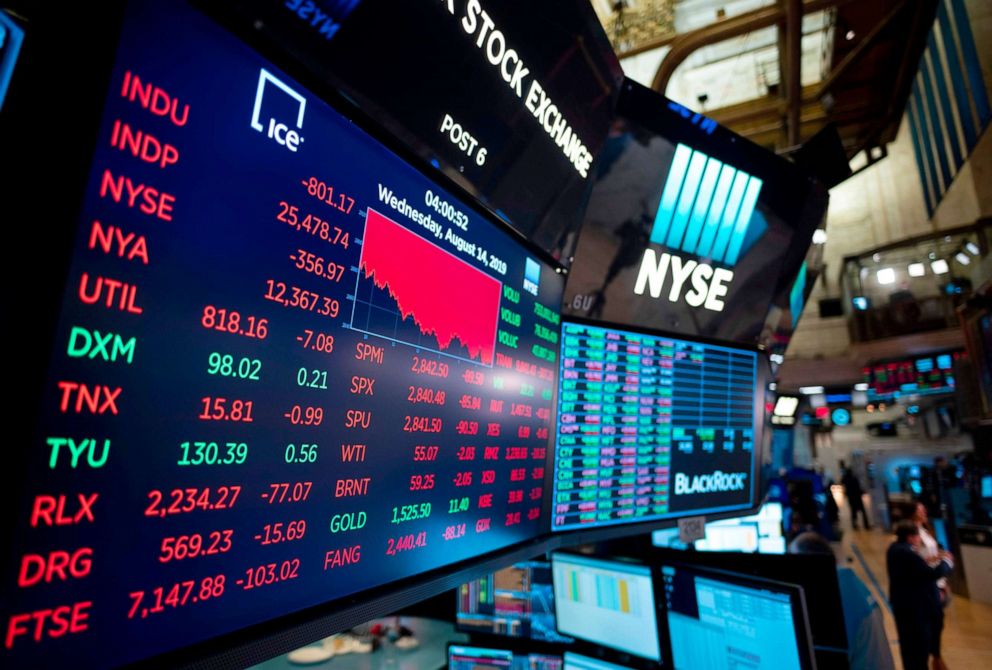Understanding the Standard Trading Schedule
The New York Stock Exchange (NYSE) operates on a standard trading schedule, with regular hours of operation that are essential for investors to understand. The NYSE typically operates from 9:30 a.m. to 4:00 p.m. Eastern Time (ET), Monday through Friday, except for designated holidays and special events. It’s crucial for investors to be aware of these standard trading hours, as they can impact trading decisions and investment strategies. While the NYSE does close early on certain occasions, understanding the regular schedule is vital for navigating the markets effectively. If you’re wondering, “does the NYSE close early today?”, it’s essential to stay informed about any changes to the standard trading schedule. The NYSE also observes holidays, which can affect trading hours, and it’s vital to plan accordingly to avoid any disruptions to your investment strategy.
Early Closures: When Does the NYSE Close Early?
The New York Stock Exchange (NYSE) may close early on certain occasions, and it’s essential for investors to understand the circumstances surrounding these early closures. The NYSE may close early due to half-days, holidays, or unexpected events such as inclement weather or system issues. Half-days, for instance, typically occur on the day after Thanksgiving and on Christmas Eve, with the NYSE closing at 1:00 p.m. ET. Holidays, on the other hand, are scheduled closures that occur throughout the year, and investors should plan accordingly to avoid any disruptions to their investment strategy. If you’re wondering, “does the NYSE close early today?”, it’s crucial to stay informed about any changes to the standard trading schedule. Investors can stay informed about early closures by checking the NYSE’s website, following financial news, or setting up notifications from their brokerage firm or trading platform.
How to Stay Ahead of NYSE Schedule Changes
To stay informed about NYSE trading hours, investors can utilize various resources and tools. The NYSE website provides a comprehensive calendar of holidays and half-days, allowing investors to plan their trading strategies accordingly. Additionally, investors can set up notifications from their brokerage firm or trading platform to receive alerts about early closures or schedule changes. Financial news websites and apps, such as Bloomberg or CNBC, also provide real-time updates on market news and NYSE announcements. By staying informed, investors can avoid disruptions to their investment strategy and make informed trading decisions. For instance, if you’re wondering, “does the NYSE close early today?”, a quick check of the NYSE website or a financial news app can provide the answer. Furthermore, investors can also set up Google Alerts or follow reputable financial sources on social media to receive timely updates on NYSE schedule changes.
The Impact of Early Closures on Trading Strategies
Early closures of the NYSE can significantly impact trading strategies, and investors need to be aware of these effects to make informed decisions. Day traders, who rely on intraday market movements, may be particularly affected by early closures. With reduced trading hours, day traders may need to adjust their strategies to accommodate the shortened trading window. Swing traders, who hold positions for shorter periods, may also need to adapt to early closures by adjusting their entry and exit points. Long-term investors, on the other hand, may be less affected by early closures, but they should still be aware of the potential impact on their investment portfolios. For instance, if you’re wondering, “does the NYSE close early today?”, knowing the answer can help you adjust your trading strategy accordingly. By understanding the impact of early closures, investors can minimize potential losses and maximize gains. It’s essential to stay informed about NYSE schedule changes to ensure that trading strategies are aligned with the market’s operating hours.
NYSE Holidays: A Comprehensive List
The New York Stock Exchange (NYSE) observes a total of 9 holidays throughout the year, during which the exchange is closed for trading. These holidays are typically observed on federal holidays, and the NYSE may also close early on certain days, such as the day before Independence Day or Christmas. Here is a comprehensive list of NYSE holidays:
New Year’s Day – January 1st
Martin Luther King Jr. Day – Third Monday in January
Presidents’ Day – Third Monday in February
Good Friday – Friday before Easter Sunday
Memorial Day – Last Monday in May
Independence Day – July 4th
Labor Day – First Monday in September
Thanksgiving Day – Fourth Thursday in November
Christmas Day – December 25th
It’s essential for investors to be aware of these holidays, as they can affect trading strategies and investment decisions. For instance, if you’re wondering, “does the NYSE close early today?”, checking the NYSE holiday schedule can provide the answer. By staying informed about NYSE holidays, investors can plan their trading activities accordingly and avoid any potential disruptions.
Half-Days: What You Need to Know
The New York Stock Exchange (NYSE) occasionally operates on a half-day schedule, which can impact trading activities and investment decisions. A half-day is a shortened trading session, typically lasting only a few hours, instead of the usual full-day trading session. The NYSE may declare a half-day on certain occasions, such as the day before a major holiday or during times of extreme market volatility.
Half-days can affect trading decisions in several ways. For instance, day traders and swing traders may need to adjust their strategies to accommodate the shortened trading window. Long-term investors, on the other hand, may be less affected by half-days, but they should still be aware of the potential impact on their investment portfolios. It’s essential to stay informed about NYSE schedule changes, including half-days, to ensure that trading strategies are aligned with the market’s operating hours. If you’re wondering, “does the NYSE close early today?”, knowing the answer can help you plan your trading activities accordingly.
Half-days can also provide opportunities for investors to reassess their positions and adjust their strategies. With a shortened trading session, investors may have more time to analyze market trends and make informed decisions. By understanding the concept of half-days and their impact on trading, investors can make the most of these unique market conditions.
Staying Informed: NYSE Announcements and Alerts
Staying informed about NYSE announcements and alerts is crucial for investors to make informed trading decisions. The NYSE provides various resources to help investors stay up-to-date on market news, trading hours, and schedule changes. By staying informed, investors can avoid unexpected surprises, such as early closures or half-days, and adjust their trading strategies accordingly.
One way to stay informed is to visit the NYSE’s website, which provides a wealth of information on trading hours, holidays, and market announcements. Investors can also sign up for email alerts and notifications from the NYSE to receive timely updates on market news and schedule changes. Additionally, following reputable financial news sources and market analysts can provide valuable insights and updates on market trends and NYSE announcements.
When searching for information on NYSE schedule changes, investors often ask, “does the NYSE close early today?” By staying informed through NYSE announcements and alerts, investors can quickly find the answer to this question and adjust their trading strategies accordingly. This is especially important for day traders and swing traders who rely on timely market information to make profitable trades.
Furthermore, staying informed about NYSE announcements and alerts can help investors anticipate potential market volatility and adjust their trading strategies to minimize risk. By being aware of upcoming events, such as economic data releases or company earnings announcements, investors can make informed decisions and avoid unexpected market movements.
Planning Your Trading Strategy Around NYSE Hours
When developing a comprehensive trading strategy, it’s essential to consider the NYSE’s trading hours and schedule changes. By incorporating this information into their strategy, investors can make informed decisions and avoid unexpected surprises. For instance, day traders and swing traders should be aware of early closures and half-days, as these can impact their trading activities and profitability.
Long-term investors, on the other hand, may need to adjust their investment horizon and risk management strategies to accommodate NYSE schedule changes. By understanding how early closures and half-days can affect their investments, long-term investors can make informed decisions and minimize potential losses.
One key aspect of planning a trading strategy around NYSE hours is to stay informed about schedule changes. Investors can do this by regularly checking the NYSE’s website, following reputable financial news sources, and signing up for email alerts and notifications. By staying informed, investors can answer critical questions, such as “does the NYSE close early today?”, and adjust their trading strategies accordingly.
Another important consideration is to develop a flexible trading strategy that can adapt to changing market conditions and NYSE schedule changes. This may involve diversifying investments, setting stop-loss orders, and regularly reviewing and adjusting trading strategies. By being prepared for unexpected events and schedule changes, investors can minimize potential losses and maximize their returns.
Ultimately, incorporating NYSE trading hours into a comprehensive trading strategy requires a deep understanding of the market and its nuances. By staying informed, being flexible, and adapting to changing market conditions, investors can make informed decisions and achieve their investment goals.








